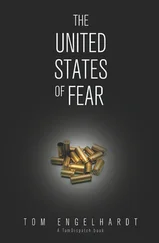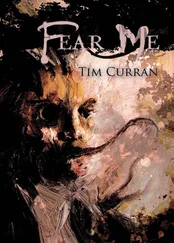“Yes, that would be a good idea,” she said. “Fanny, didn’t you like your tart?”
I excused myself and quit the dining room and nearly ran into Ella coming up from the basement. She looked as if she had just had a good laugh.
“Is everything all right?” I asked.
“Yes, sir, just fine.”
I found him downstairs, in the room we used for our “passengers,” as they were sometimes called — it was in fact our old kitchen. He stood up as soon as he saw me. One could tell immediately that there was something different about him, as Addie had indicated. A kind of quickness about the eyes, perhaps — green eyes, with something almost feminine about them. Most of these guests had a deferential air and were not quick to meet one’s eyes. This William was not afraid to meet one’s gaze with a gaze of his own. I do not mean to say that it gave offense, only that one was unaccustomed to meeting such an expression in a Negro. He was rather short of stature, and he wore a plaid flannel shirt buttoned to his neck, braces, and a straw hat which he remembered to remove only after several seconds had passed.
“Welcome,” I said. “I see you have supper; I won’t keep you. Your travels were satisfactory?”
“Yes,” he said. “Where am I?”
I could not suppress a brief chuckle at the ingenuousness of the question. “You are in Auburn, New York. Our friend didn’t tell you where you were going?”
“He told me we were in Auburn, but I didn’t know where it was. Are we close to Canada?”
“Fairly close,” I said. “You are anxious to get there, of course.”
“No,” he said. “I don’t want to go to Canada.”
I could see now what Addie meant. The usual air of submission was absent.
“Well, then, where are you hoping to go?” I said.
“I don’t know,” he said. We stood regarding one another for a few moments, and then he said, “They said you’re a senator.”
“Yes,” I said. “They said you play the banjar.”
He laughed at this — at the nature of the exchange, it seemed, rather than the substance. “I do.”
“Well, I hope that before you leave here you will play some music for us.”
His eyes widened in surprise.
“Or not,” I said. “If you do not wish to.”
“No,” he said, “I will.”
“Good, then,” I said. “Well. Please don’t let your supper get cold. And I should rejoin my family. Perhaps after dinner, a bit later? If you are so inclined.”
He nodded; the expression on his face was odd indeed, a simultaneous frown and smile. I took my leave and went back upstairs.
“I see what you mean about our guest,” I said. “I asked him to play on the banjar for us after dinner.”
“The boy has just arrived, Bill. Let him catch his breath.”
I saw that Fanny had instantly brightened at the idea, though, and her pleasure was ours, always.
After the table was cleared and we had had our coffee, I went downstairs and found our guest sitting in the small rocking chair, looking at loose ends, an expression of sadness on his face. Across the narrow mattress at the far end of the room was a banjar. I had the odd sensation that there were two people in the room, the fellow and the instrument.
“You know,” I said, “we are both named William.”
“What?” he said. He seemed slightly confused by this information. “Should I call you William?”
I was taken aback at this, and quickly reminded myself that the majority of slaves had not had extensive instruction in etiquette, and to be patient. “Why don’t you call me Senator,” I said, trying to be reassuring. “You may call Mrs. Seward ‘Mrs. Seward,’ and our daughter Fanny is Miss Seward.”
“I’m sorry!” he said.
“No, no. Nothing to be sorry for. Will you come and play for us?”
He stood, crossed the room, and picked up his instrument. I had a pang, then, watching him, as I had so many, trying to comprehend the degree of dislocation, the sheer strangeness of being in a strange house, among strangers, no matter how well-intentioned, in a strange town set into a strange countryside. I thought that Addie might have been right, and that I was forcing the boy to do something he was not ready to do. But I love music so, and Fanny does, as well.
“You do not need to play for us,” I said. “This evening, or ever. I hope I am not. .”
“No,” he said, “I’m happy to play. Some don’t like it.”
“Well,” I said, “anyone who does not welcome music into his home has some terminal deficiency of spirit.”
He smiled, nodded, and we walked up the stairs.
Addie and Fanny had taken their places in our parlor. I saw William looking around as we walked through the dining room; our house is well stocked with paintings and various artifacts that I have managed to gather on my travels across the country and around the world, and the young man took it in as if he were a pilgrim at the Sistine Chapel. I thought that I would give him a more detailed tour if he showed interest, perhaps the next morning.
“Don’t put him on that little stool, Bill,” Addie said.
“But his arms will need room if he’s to play the banjar,” I offered.
Addressing the young man, she said, “Come here and sit in this good chair.”
“You have met my wife, Mrs. Seward.”
“We’ve already met, Bill,” Addie said, installing him in an armchair where she often crocheted of an evening.
“And this,” I said, “is my daughter Fanny.”
I saw the young man regard her with a look of tenderness and even mutual understanding. “Hello, Miss Seward,” he said.
Fanny beamed and said, “My name is Fanny!”
William looked at me, and with a shrug I tried to indicate that my world was ruled by women, and that he should submit to the same law.
He sat in the proffered chair.
“Would you like anything to refresh yourself, William?” Addie said to our guest.
“No, thank you,” he said.
We all arranged ourselves — Addie and Fanny on our divan, and myself in my own chair. Nicholas had gotten a good fire underway. The young man set to tuning his banjar with an extraordinary concentration, and we all three watched him until he had got the strings pitched to his satisfaction.
“Is there anything you would like to hear?” He addressed this to the room, but his gaze alighted on Fanny, and his eyebrows went up and she blushed.
“Can you play ‘Angelina Baker’?” she asked.
I saw Addie’s face tighten a bit, and then she said, “Fanny, perhaps another song,” and she sent me a stern look. I happened to be quite fond of the song, but Addie disliked it because of its plantation theme. Of course I sympathized, and played it, badly, on the pianoforte only when she was not around. It was a favorite of Fanny’s, and I think Addie blamed me for instilling a fondness for the “Darky” songs in our daughter.
William looked across the room at me, and I spoke up. “At your pleasure, William.”
He smiled at Fanny, and said, “That’s one of my favorites, too.” To Addie, he said, “May I play it for her?”
Impossible to say no under the circumstances. Addie managed a smile and said, “Go ahead.”
He began the familiar tune simply, on his banjar, and after his initial tour of the melody started singing:
Way down on de old plantation,
Dat’s where I was born.
I used to beat de whole creation
Hoein’ in the corn. .
I will admit that it was an odd sensation, listening to those lyrics we had sung with such gusto, coming from the mouth of one who had suffered under the lash. Addie was visibly uncomfortable. Still, Fanny and I joined in happily on the refrain,
Angelina Baker! Angelina Baker’s gone;
Читать дальше










